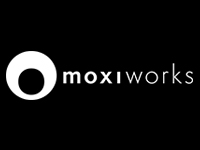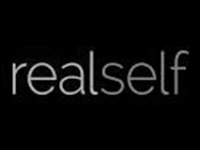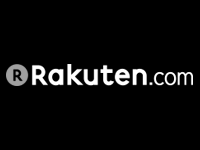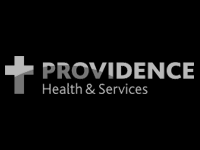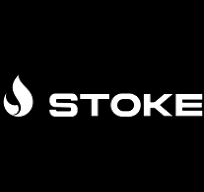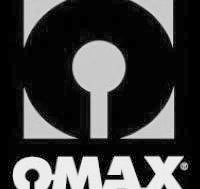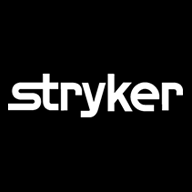Archives
Archives
Archives
 The official motto of the US Air Force is “Aim High…Fly-Fight-Win.” With exception of the latter part, this is easily applicable to your professional life. I learned this lesson early in my career when I had my first sales job. Ironically, there was a period in my career when I could have benefited from the sage career advice I dispense daily as a head hunter today. I made some questionable career moves, including a stint as a financial adviser.
The official motto of the US Air Force is “Aim High…Fly-Fight-Win.” With exception of the latter part, this is easily applicable to your professional life. I learned this lesson early in my career when I had my first sales job. Ironically, there was a period in my career when I could have benefited from the sage career advice I dispense daily as a head hunter today. I made some questionable career moves, including a stint as a financial adviser.
Although it ultimately wasn’t the right career for me, I learned a lot in that role including the importance of diversification, the ability to deal with and overcome rejection, and how to sell. As any salesperson knows, a sales role is an occupation highly dependent on hitting numbers, metrics, and goals. You are only as good as the last deal you closed.
In my first year of production, I sat in on a 1-1 with my branch manager to discuss my progress. The firm had minimum performance goals, but anyone focused on meeting minimums did not have the right mindset to be successful. Although the firm dictated what you needed to do to keep your job, it was up to me to set my production goal for the year. After careful consideration, I set my number, which was on the high end but feasible if I kicked ass and some good fortune swung my way. I felt good about my target. It was optimistic, but achievable.
Without skipping a beat, my manager incredulously replied, “why not go higher?” Up until then, I never considered or appreciated the nuance of that question. He continued to utter a phrase that I will remember throughout my career: “Jim, you can only go as high as you aim. Aim high”
The simplicity and veracity of this statement is quite profound. You will only go high as you aim. When it comes to your professional career, how high are you aiming? Are you artificially constraining your goals based on what you believe is realistic, achievable, and within reach? Little did I realize I was artificially capping my own potential. Ever since that day, I have made it a point to aim high and approach every opportunity in life (professional and otherwise) with fearlessness, optimism, and the expectation of killing it every day.
I’ve taken on challenges that I might have questioned or second-guessed otherwise. The net result is that I’ve had my fair share of rejection, misses, and disappointments. But I’ve also had even more successes and wins, knowing without this mindset I would not be where I am today.
If you find your career and parts of your life wanting, I encourage you to not be fearful, shoot for the stars, and simply see what happens. I guarantee, you have absolutely nothing to lose yet so much to gain.
 *I’ve written about salary negotiations before here. I’m not against salary discussions, I actually believe they are very important. So important, in fact, that you should talk money early and often with your recruiter. I get a lot of questions from friends and family about how much they should ask for, or how to counter an offer. I willingly share my thoughts and recently helped a friend get a pretty significant increase over her current salary AND a slightly higher bump to the offer she was originally given. I’m not against salary negotiations. I do, however, have a significant aversion to bullshit.
*I’ve written about salary negotiations before here. I’m not against salary discussions, I actually believe they are very important. So important, in fact, that you should talk money early and often with your recruiter. I get a lot of questions from friends and family about how much they should ask for, or how to counter an offer. I willingly share my thoughts and recently helped a friend get a pretty significant increase over her current salary AND a slightly higher bump to the offer she was originally given. I’m not against salary negotiations. I do, however, have a significant aversion to bullshit.
I don’t believe in negotiating just because you can.
I reject the idea that candidates leave money on the table if they take the first offer.
That’s what I did.
My good buddy and mentor HR Nasty wrote an EXCELLENT must read post about the reality of lowball offers. Simply put, we just don’t make them. Instead of trying to recreate the brilliant article that he’s already put out there, I decided to share my story. A little history – most of you know I joined Microsoft earlier this year. I’ve had a solid run in recruiting, starting in agency and moving to the corporate side a few years ago. I’ve always had a “bucket list” of sorts, a handful of companies I’d like to work for before I die. Even though I loved my job, as I told my husband – “when Microsoft calls YOU ANSWER”. And I’m so glad I did. Just because I’m a recruiter, doesn’t mean I’m exempt from the recruiting process. I had to apply. I went through a recruiter screen followed by an interview loop. I received an offer. I took it.
That’s right – the professional recruiter who some would say should know better took the first offer she was given, and liked it. Here’s why –
I did my homework. I knew going into the process where I “should” be. I talked with other people in similar places in their careers at a lot of different companies. There were no surprises and I never felt that my expectations were unreasonable. A lot of information you’ll find can be somewhat suspect, but it’s still worth at least checking out. The most important thing, at least for me, is that I felt prepared.
I trusted my recruiter. We talked about money pretty early in the process. He knew not only where I was in my current role, but also where I wanted to get to. We had a multiple honest and transparent conversations. I felt very comfortable that, even though my recruiter worked for the company, he cared enough about me and my career goals to make sure I was treated fairly.
I got a solid offer. Remember all that homework I did, and the conversations with my recruiter? Well they paid off, since the offer I got exceeded my expectations. I had a number in mind, and all in, the number was more than met. What more can you ask for?
I was honest with my trusted recruiter. This may not be an issue for the average job seeker, but as a recruiter, it immediately came to my mind. Was I supposed to negotiate? I told the recruiter that I was thrilled with the offer and wanted to accept – BUT – I had to be sure. As a recruiter, was I being tested? Did my new boss expect me to counter? My new recruiter BFF only laughed at me a little and assured me that was not the case. He felt (as I do, when I make an offer) that it was a fair package taking into consideration all the relevant factors. I would have to be an idiot not to accept it immediately.
I am not an idiot.
I jumped on the opportunity and never looked back. I’ve never once wondered if I left money on the table. By accepting a fair and competitive offer at the first pass, I saved everyone a lot of hassle. Now I certainly don’t know all the backstory conversations my recruiter and boss had during my offer process, but I can tell you how it feels as the recruiter making offers. There’s not much I find more frustrating than negotiating with a hiring manager, nailing down a solid offer and delivering it to the candidate – only to have to go BACK to the hiring manager because the candidate is under the (incorrect) assumption that we’re intentionally low-balling. No one wins at that game, and I hate to lose. There are times when negotiating makes sense – in the case of my friend, she was significantly underpaid (one of the reasons she was looking) and was worth, in my opinion, more than the offer she ended up accepting. By taking my advice and stating her case succinctly, professionally, and with data to back it up, she was able to get closer to her target number. She happily accepted and when we did the math, realized just what a huge percentage jump she made. It was a great end to a tricky situation and I’m glad I was able to advise her on smart salary negotiations. It’s just not always necessary.
A huge shout out to Amy Ala for contributing this piece. Check out Amy’s blog to get more awesome recruiter insight.
***This blog originally posted to www.hrnasty.com. Follow him at @HR_Nasty**
One of the most important factors contributing to a successful company is hiring. The local presence of several tech giants such as Amazon, Microsoft, and Google, a shortage of employees with the right skills, and the escalating war for talent make recruiting a daunting and labor intensive challenge. If assembling a world class team is such a pivotal part of building a company why would you even think to outsource the process? Here are a few reasons why it might make sense for you to work with a trusted recruiting partner.
1) It allows you to focus on your business.
Whether you’re hiring for an entry level role or a manager the process takes valuable time and resources away from you and your team. It’s easy to become overwhelmed by the volume of resumes in order to find qualified candidates, screenings candidates, and scheduling interviews for the few candidates that you THINK might be a fit. Multiply that effort by the number of open positions, and suddenly recruiting talent becomes a full time job leaving little time to spend on your core business. An outside recruiting partner can ensure that you only meet top candidates to help save you considerable time and energy.
2) Cost reduction.
Recruitment is not only time consuming, but costly as well. Employing an in-house recruiter consist of labor costs and the associated expenditures that allow the recruiter to effectively do their job. These cost include job-board postings, specialized applicant tracking tools, up to date recruiting technologies, and much more. When working with an outside resource these expenses are bundled into your agreed placement fees. With the popular “contingent” placement model working with a recruiting partner will not cost you a dime until your position is filled.
3) Periods of high growth.
There are times when your company will experience times of high growth, including adding additional headcount. It could also mean that your company might just need some temporary staff to get through the resource spike. Regardless, additional time is required to make sure you have the appropriate staffing complete these projects. An external recruiting partner will have the available network and bandwidth to help scale your teams. Your recruiting partners can also take over internal recruiting processes to free up precious hours.
4) Ability to compete.
With limited tools smaller companies tend to lack access to the same candidate pool as larger companies. Working with an external recruiting partner will allow companies to compete with larger companies that have the ability to reach a broad range of potential candidates. In addition to the extended reach your recruiting partner can provide, they can also help you quickly move on candidates that are actively searching for new opportunities. This will elevate your chances of onboarding these candidates before other companies even know they’re on the market.
5) Streamlined recruiting process.
Recruiting can seem like a disjointed process at times. Keeping track of candidates, scheduling interviews, providing feedback to managers and candidates, and presenting and negotiating offers takes a lot of coordination. An outsourced recruiting resource has the ability to take over the entire process to allow one point of contact, thus creating a seamless process for both you, the employer, and the candidates that you are hoping to hire.
Engaging and hiring an outside resource has the potential to become a partnership that will save your company time, money, and energy. A good partner will be working for you and your company’s best interest and will dedicate key resources to help you grow, so it is important to find a firm that is match for both you and your team. Good partners will be there for you when times are tough and during periods of great success.





